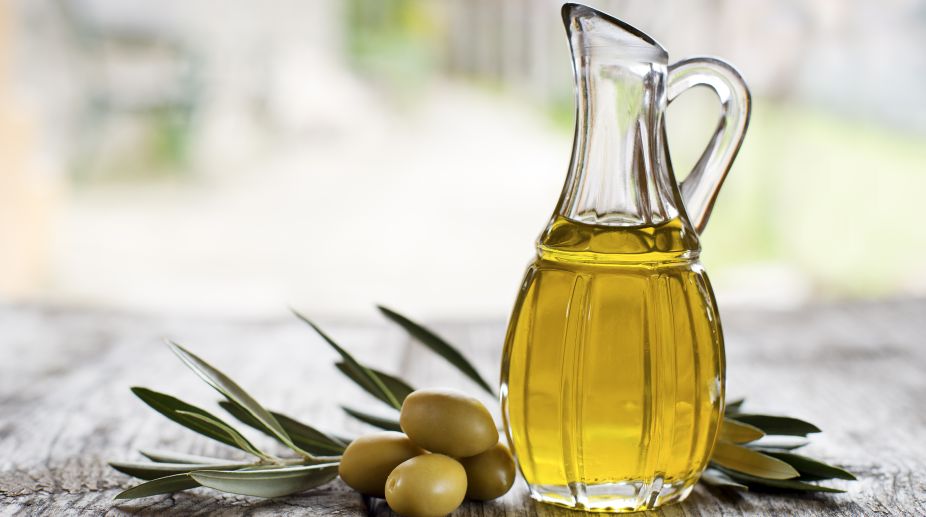My cup of tea
During my last visit to India some of my relatives asked me what I missed most from my life in India in the US. I did not have an immediate answer, but thought about that question off and on for a long time.
Mustard oil lowers the risk of heart diseases and is also a very powerful natural stimulant and improves digestion and appetite.

(Photo Source: Getty Images)
Mustard oil has been used for centuries as a food additive and remains a staple in a majority of Indian homes. Incorporating mustard oil into your daily diet is known to protect against heart disease. The oil is rich in monounsaturated fats and polyunsaturated fats, both of which help lower bad cholesterol and raise good HDL cholesterol hence maintaining one’s cholesterol balance, which in turn leads to healthy cardiac functioning.
“Mustard oil also works well as an antibacterial, antiviral and antifungal agent and can help fight bacterial infections in the digestive system,” Executive Chef Arun Sundararaj told IANS.
Advertisement
“From the taste point of view, mustard oil is an acquired taste for most people. Although pungent in character, mustard oil brings tremendous flavours to any dish. I believe that there is no ingredient that comes close to it — mustard oil has a unique texture to it. At the Taj Mahal Hotel, New Delhi, we use mustard oil in dishes such as Mustard Prawns and Bhatti Murgh,” he said.
Advertisement
At the same time, Sundararaj adds: “It is recommended that one does not use mustard oil as the sole medium for cooking and instead uses a combination of different oils depending on the dish you are cooking. Mustard oil has a high smoking point and as a result, is ideal for deep frying.”
Executive Chef Sonu Koithara had a similar take on the benefits from the health and palate point of view of cooking in mustard oil.
Noting that mustard oil has culinary as well as therapeutic uses, Koithara told IANS: “It has an edge over other oils due to the optimum ratio of omega-3 and omega-6 fatty acids and its low content of saturated fats. It contains about 60 per cent monounsaturated fats (MUFA), as well as polyunsaturated fats (PUFA), and saturated fats. These fatty acids are considered ‘good fats’.”
He also pointed to research which suggests that mustard oil has strong cancer-fighting properties and that it contains ample amounts of linolenic acid, which when converted to omega-3 fatty acid, helps prevent cancers.
“Mustard oil also benefits the heart as it contains rich amounts of MUFA and PUFA as well as omega-3 and omega-6 fatty acids. These good fats lower the risk of developing heart diseases and is also a very powerful natural stimulant and improves digestion and appetite by stimulating digestive juices,” Koithara explained.
Umesh Verma, DGM (Corporate Communications) at Puri Oil Mills Ltd, the makers of P Mark mustard oil, said: “Mustard oil is the preferred choice of generations of chefs across traditional Indian cuisine spanning Kashmir, Punjab and West Bengal as it bring alive the flavour of food.
“Indians like to carry the taste of India to whichever country they move to — and find ingenious ways to track down their favourite brands in those countries. We keep hearing of our mustard oil being available in the US and in various European cities. It’s a great feeling.”
Are there any foods that particularly lend themselves to being cooked in mustard oil?
The oil is one of the best-suited for Indian homes because of its versatility, Sundararaj said, adding it complements Indian spices and beautifully brings out the flavours of our food.
“While mustard oil complements both vegetarian and non-vegetarian ingredients, dishes such as pickles of all kinds taste best when made in mustard oil. In addition, mustard oil can be used as a salad dressing along with lemon and honey.
“Also there are many Bengali fish preparations like sarson bata maach, paturi fish and other dishes like mangsho (mutton), murgir jhol (chicken) are best enjoyed when cooked in mustard oil,” he said.
For, Koithara, the use of mustard oil in Bengali food “is immense and it absolutely complements the Bengali palate. Foods like Shorshe bata ilish and Chingri bhapa are delicacies that cannot do without the generous use of mustard oil”.
Any other thoughts they’d like to share on the subject?
“There are some ingredients that can never be replaced in the Indian kitchen and mustard oil is one such essential because of its unique and pungent flavour,” Sundararaj said.
Pointing to mustard oil’s immense health benefits, Koithara said it is very good during winter as it produces body heat and protects the body from cold.
“For this reason, people in Rajasthan use mustard oil on their bodies during winter to keep the skin supple and themselves healthy. Additionally, mustard oil has been used extensively as a cure for cold and cough for decades,” he added.
Advertisement